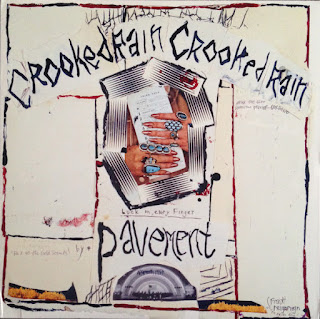The Microphones - Mount Eerie (Album Review)
The Microphones - Mount Eerie
(2003)
My copy: 2013 remastered reissue by P.W. Elverum & Sun, LTD.
Mount Eerie was devised in part to retire Phil Elverum’s Microphones moniker as he pondered his relationship with music and art. Having always been an existential lyricist, Elverum at last succeeds in creating a musical experience that transports listeners into the world of his philosophical poems. Mount Eerie transcends whatever genres Elverum’s past works are labeled as, elevating his blend of noise and lo-fi folk arrangements into full blown musical set-pieces that grow and die as if they were living beings themselves.
The almost 20-minute odyssey that is “The Sun” begins quietly with a droning bass tone that has appeared in several other Microphones songs. A deep percussive heartbeat pans across channels before a new rhythm takes over, mixing in a variety of both digital and organic percussive elements. The track eventually drops the more electronic sounding aspects to focus on a collection of tribal drum beats as they battle for supremacy with underlying drones and horns. The drums glide from right to left, fade in and out and relish in simple repetitive melodies, more akin to afro-beat than indie folk. A collage of samples provide a richer atmosphere before the drums finally fall apart and concede to Elverum’s long anticipated vocals. Elverum sings alongside a buzzy nearly muted bass as the track’s complexity is rebuilt through simpler percussion and more elaborate melodies. The experience is utterly transcendental as Elverum moans dramatically with his cascading patchwork of odd sounds and eclectic instruments. The music draws sharp breaths, though the exhale is always more soothing than the inhale.
The mammoth introductory track is at last picked up into a more furious tempo before static waves offer a rebirth. The calm acoustic ballad of “Solar System” emerges from the other side of the tunnel with Elverum softly singing alongside a warm choir of voices. The track fades away like a cool breeze before “Universe” picks back up now with the addition of increasingly distorted toms. A passage of ringing instruments cry in order, creating urgency before the deepest bass tones yet convert everything to tension. Growling distortion rises with syncopating drums as the vocal melody from track one is revisited. The drums shift into a bouncier groove with sweet female vocals contrasting the dark droning music. A strangely bassy voice calls out to Elverum as the song is rearranged into emotional swells - fading only to an ethereal collection of vocal moans.
A diverse collection of voices chant on “Mount Eerie” with room noises filling out the mood. Suddenly, the pace quickens with a sharp beat as bizarre hip-hop-like vocals call out over a variety of mouth sounds; while this passage is commendable for being totally unlike anything Phil has ever done before, it unfortunately sours the delicate atmosphere that had been built to that point. The album grounds itself in slow acoustic guitar and panned, pitch-shifted vocals. There are so many unique instruments and found sounds across the whole record that it would be impossible to concisely list them all, but Elverum’s ambition pays off as there is also an almost prog-like sense to the ever changing structure of these songs. Rain sounds grow in depth as they are accompanied by wind and thunder, only to drop suddenly to Elverum’s solo vocals on final track “Universe.”
The last track is tender, with a wide range of voices again providing a cozy backdrop for Elverum’s lyrics. There are more diverse instrumentation patches, but ultimately the album ends as the set of voices quietly fade away. The album begins in darkness with ominous percussion and drones, and ends thematically with simple melodic human voices. Elverum is not one to boast about wisdom or accomplishments (most of his lyrics are phrased as questions) but with Mount Eerie he has created a magnum opus that near flawlessly matches the desolation often communicated in his lyrics. There are a few minor misses in concept, but Mount Eerie is truly one of Phil’s greatest works that should be heard by even those who don’t typically enjoy his music.




Comments
Post a Comment